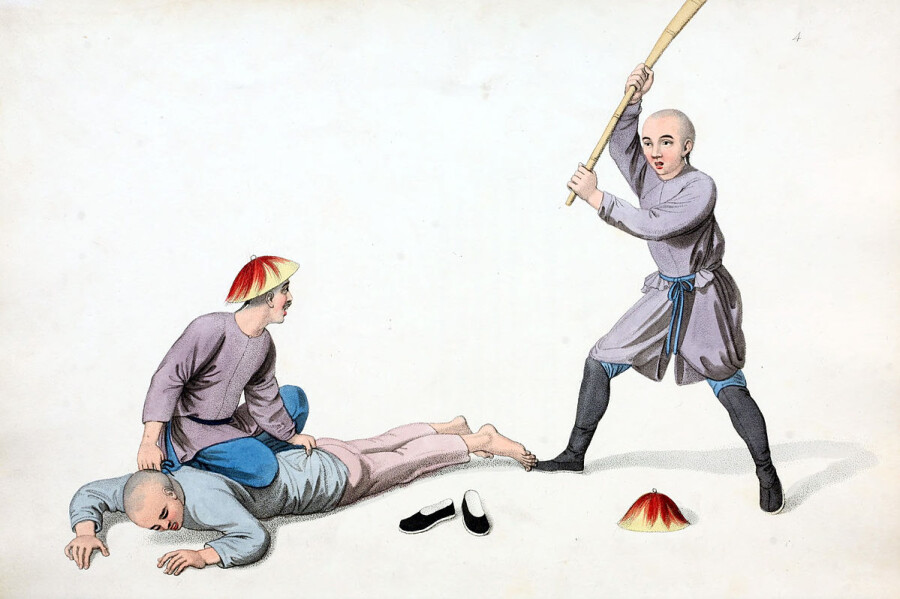
There was another, special meaning for the zugunder, in the old cruel times, when corporal punishment was part of maintaining discipline in the tsarist army. A hundred blows with a stick is one such punishment. Soldiers were sentenced to a hundred – translated into German “zu hundert”, zu hundert, hence zugunder.
Another version is also plausible, which leads directly to criminal jargon. The phrase “zug unter” means “follow one another” in the sense of a chain of prisoners chained together in order to avoid escape. In such a column, they walked on foot to the place of punishment, to hard labor.
If we summarize all of the above, it becomes clear: this word does not mean anything good. And the one in relation to whom the zugunder is applied is a priori an unfortunate person, or as another slang word says – suffered (from the term of criminal proceedings “victim”).
The meaning of the word
Zugunder how the term has multiple meanings:
Prison (or any other conclusion) – to bring to zugunder means to bring to prison. That's what the gang leader in the movie had in mind when he talked about Fox. Love for a beautiful life (taverns and women, that is, restaurants and women) required a lot of money, plus it attracted a lot of attention, which is completely undesirable for criminals.
To get on a tsugunder means to go to jail. This word is immediately considered in the meaning of a prison term (for example, five years of zugunder) or other imprisonment (for 15 days of zugunder).

Zugunder is rarely used as a synonym for death – apparently, in this case the word corresponds to the German “zugrund” – to the grave (to die or go to the grave – zugrunde gehen).
And again – nothing good, whatever one may say and whatever meanings you consider. Well, except for a leash for walking the dog, of course.
Who mentioned zugunder
If you look at Russian classical literature, it turns out that long before the screenwriters of The Meeting Place, famous writers and playwrights used this word. Zugunder is also found in modern literature.
- And now, tea, are you confused in debts? Pull on a zugunder? (Ostrovsky A.N. There is enough simplicity for every sage)
- Yes, in fact, if you judge, why would Baba Yaga not live in the forest. In the city, she would now be on a zugunder, and in the forest – thank God! (Averchenko A. T. Podkhodtsev and two others)
- “Speak, scoundrel, where did you get it?” – “There, then …” Well, they will pull me back to the zugunder: judge me, the unjust judge! (Kuprin A. I. Yama)
- From kind people, well, from creditors. After all, he is on a zugunder, Lyudmila Gerasimovna. (Ostrovsky A.N. Scenes from the life of the outback)
- Come to the zugunder, name! (Mamin-Sibiryak D.N. Zoloto, 1892)
- – If you have a scandal at least once in your noble house, then I’ll take you to the zugunder, as they say in a high style. (Dostoevsky F.M. Crime and Punishment)
- He will get out of business, he will lose respect for his elders, he will begin to use foul language. Here they will scratch him at that time, a servant of God, – and on a zugunder. Behave nobly, do not be turbid, do not bring despondency to others. (Saltykov-Shchedrin M.E. Well-intentioned speeches)
- Well, of course, I immediately put him under the zugunder. (Turgenev I. S. Dym)






